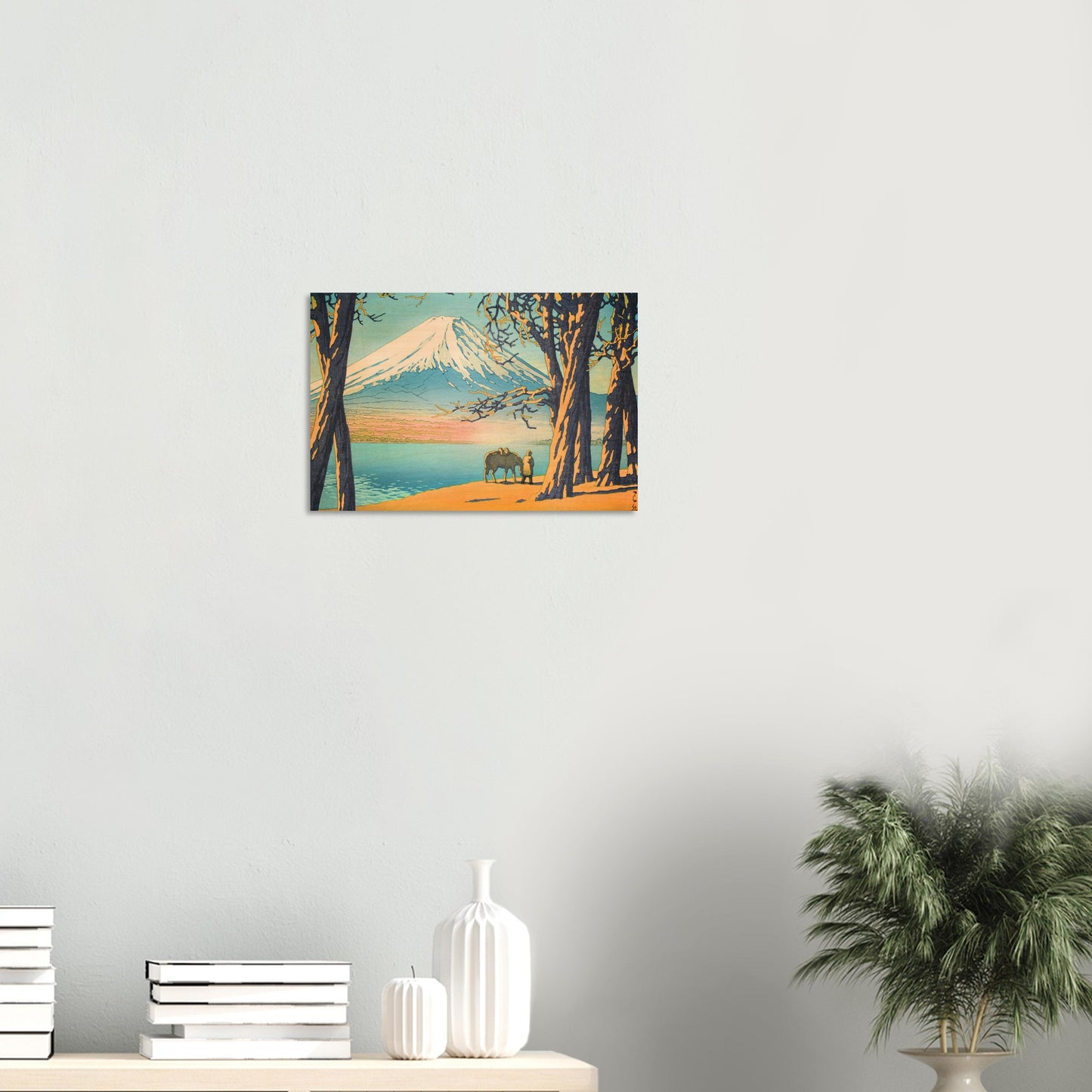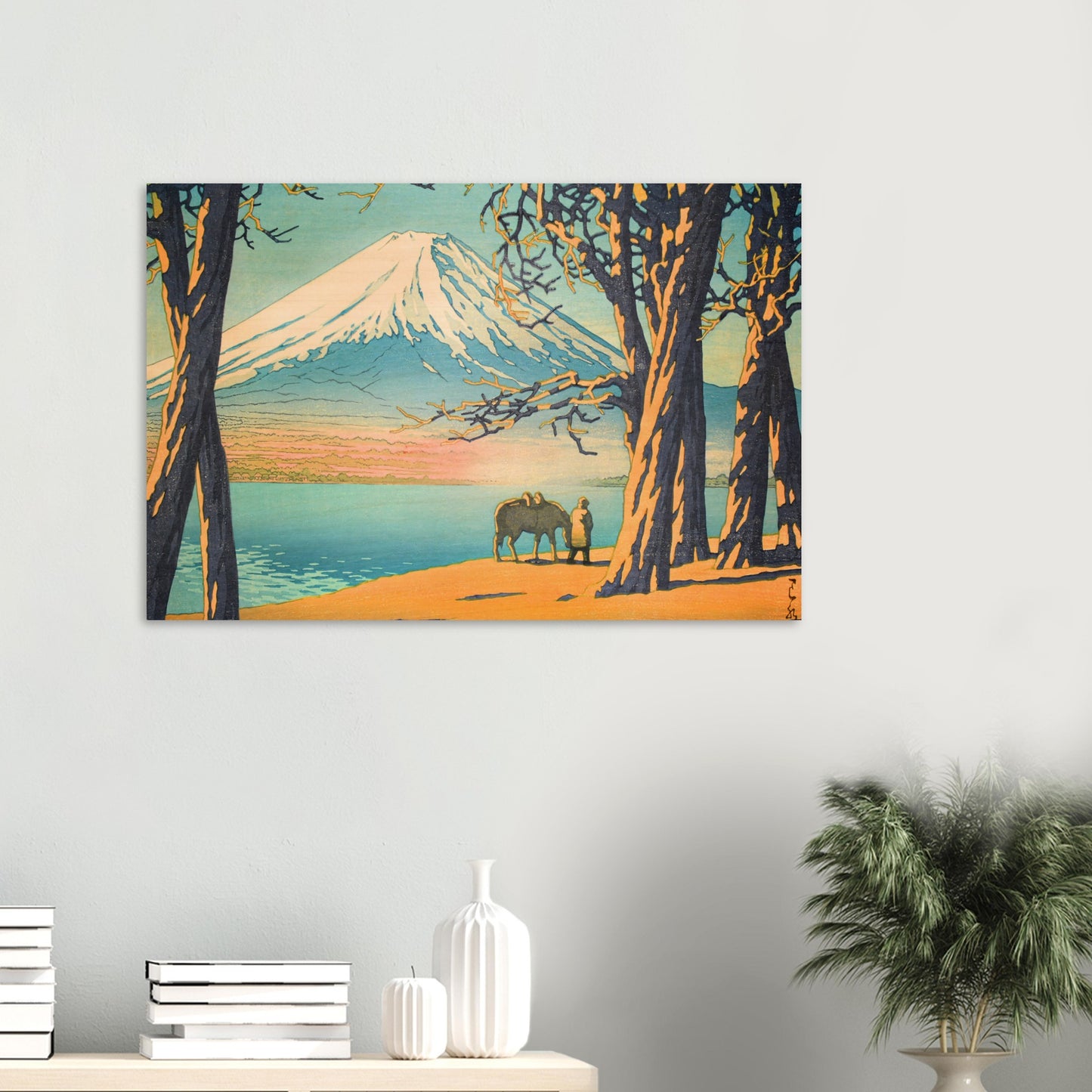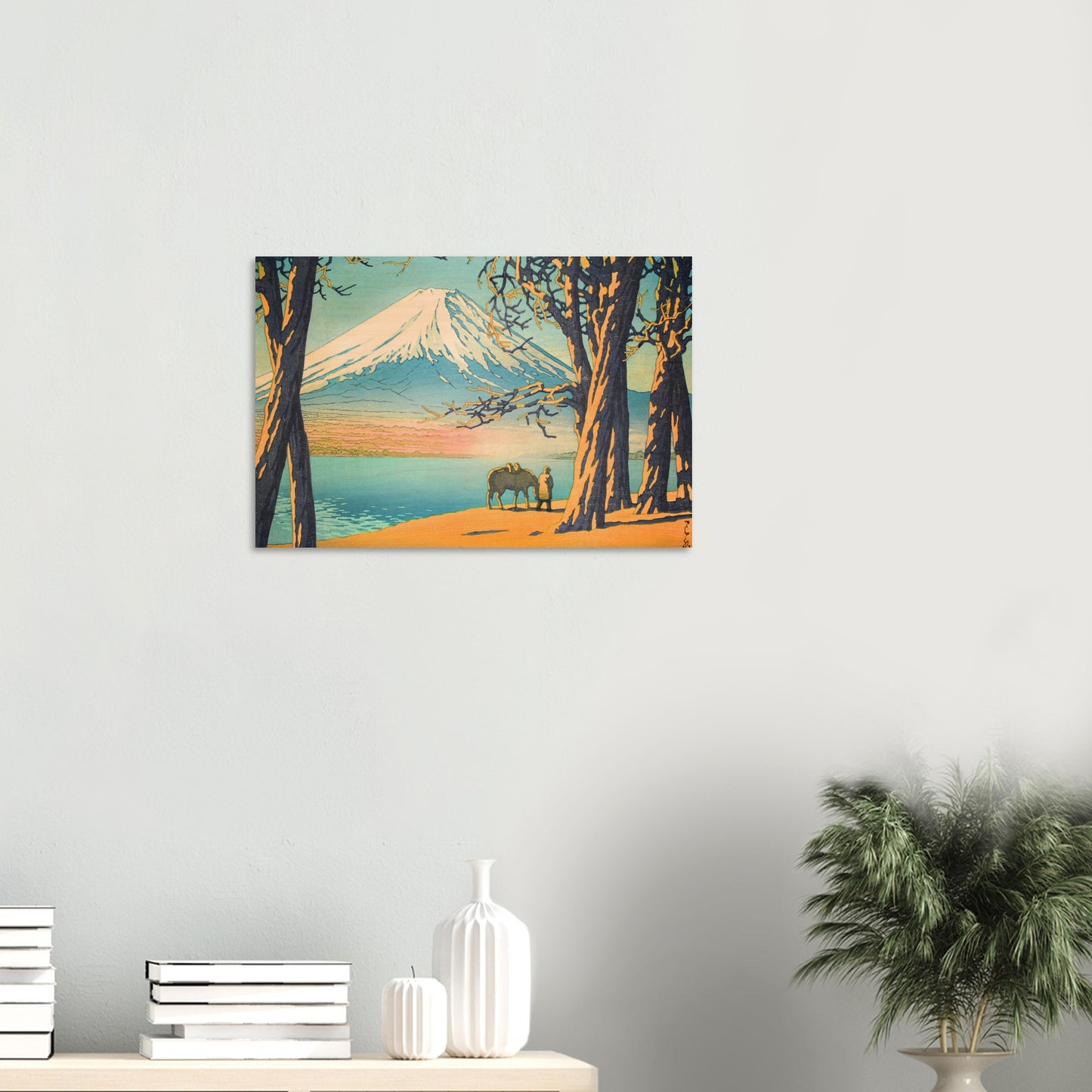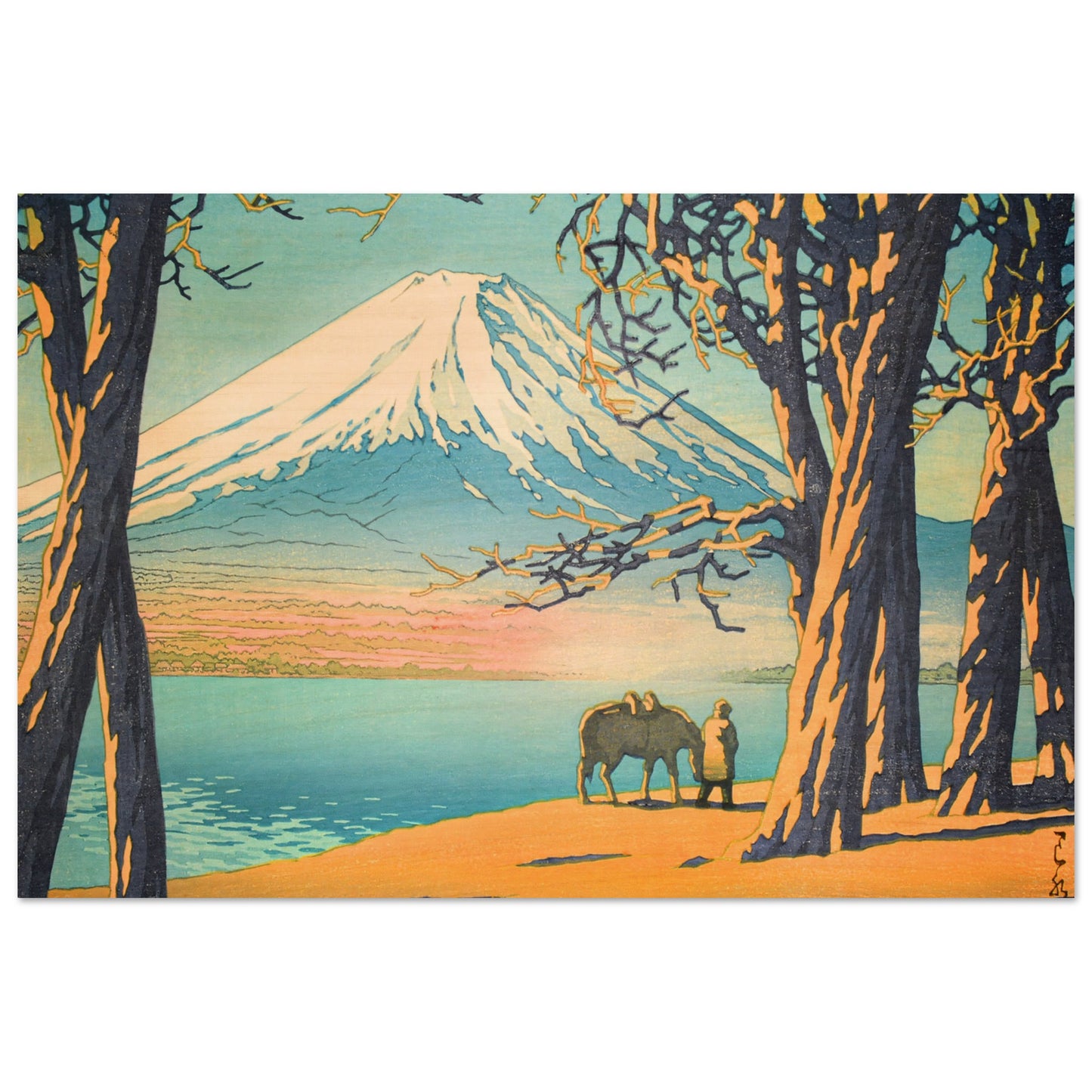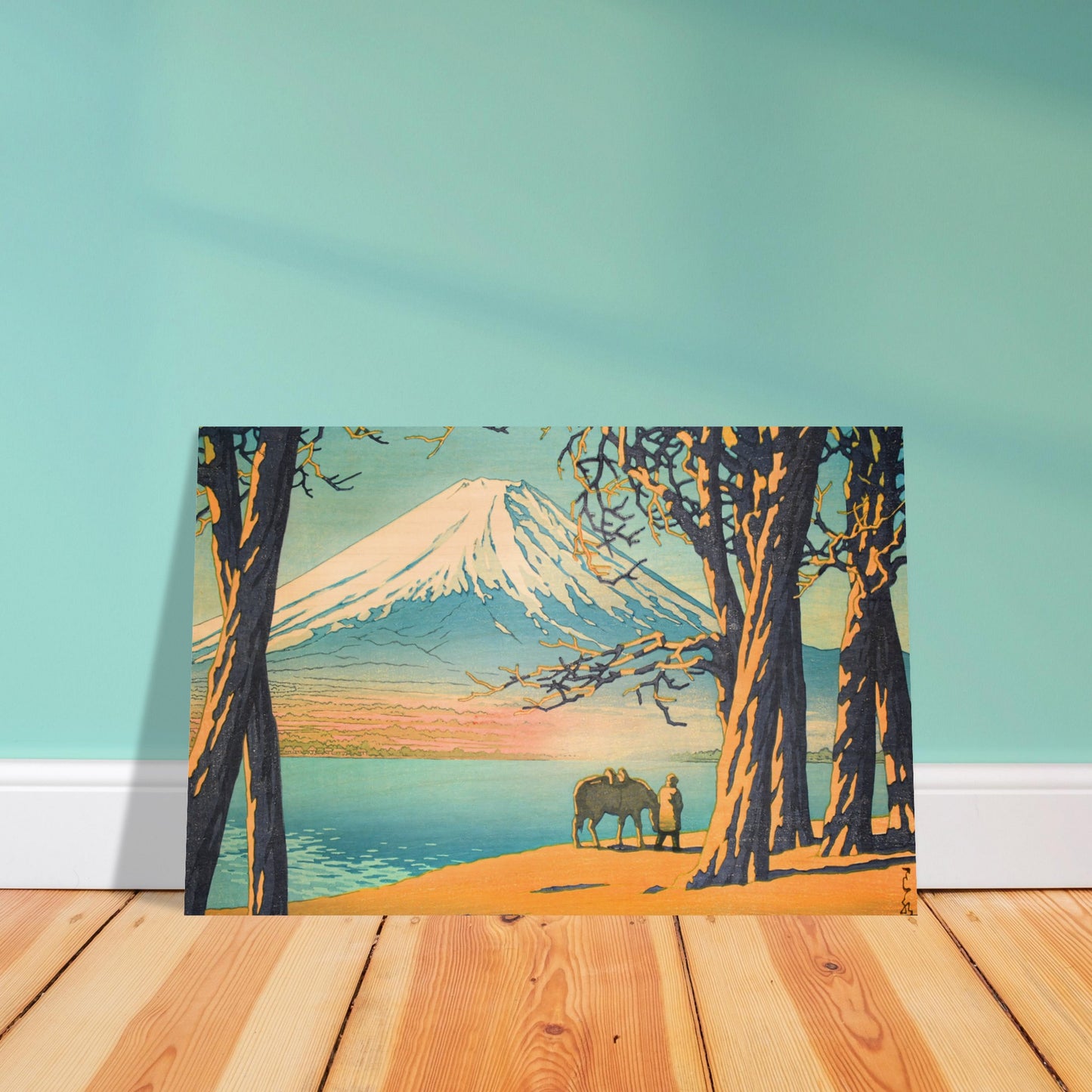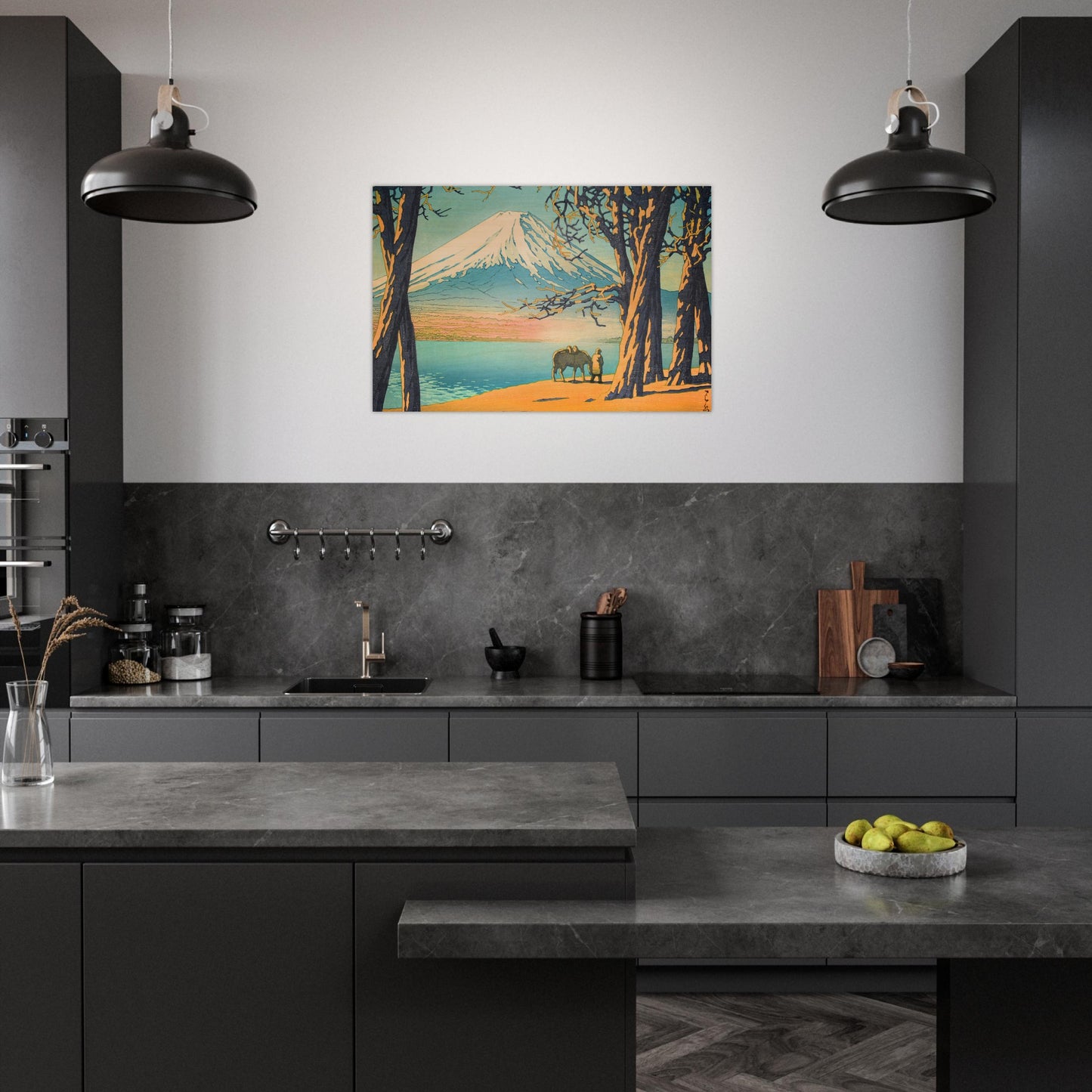Late Autumn at Lake Yamanaka by Kawase Hasui - Wood Print
Late Autumn at Lake Yamanaka by Kawase Hasui - Wood Print
Couldn't load pickup availability
Experience the natural harmony of Hasui's "Late Autumn at Lake Yamanaka" with this textured wood print.
About the Artwork
Created in 1947, "Late Autumn at Lake Yamanaka" is a woodblock print by Kawase Hasui, a master of the shin-hanga (new prints) movement. This autumn scene depicts a solitary figure walking alongside a horse on the shores of Lake Yamanaka, one of the Five Lakes of Mount Fuji. The foreground is dominated by bare trees, their leafless branches a stark reminder of the late autumn setting. Hasui employs a warm color palette, evoking the golden hues of the season. The composition is anchored by a dramatically large Mount Fuji in the background, its imposing silhouette rising above the tranquil lake. This print, created in Hasui's later career, showcases his enduring mastery in balancing intimate human elements with grand natural landscapes. The use of warm colors and the contrast between the bare trees and the majestic mountain create a poignant atmosphere, capturing the transitional beauty of late autumn.
Print Details:
Our wood print beautifully enhances the natural elements of Hasui's "Late Autumn at Lake Yamanaka" with organic, textured elegance. Crafted on birch wood, it brings a warm, earthy feel to this autumnal artwork, perfectly complementing its portrayal of the seasonal landscape.
Features:
- Made from high quality birch wood
- Available in both thin (approx.10mm/ 0.4") and thick (approx. 20mm/ 0.79") options, allowing you to choose the perfect depth for your needs
- Includes mounting hardware
- Lightweight and versatile
- Sizes may vary slightly by region. For the US and Canada, the measurement is in inches, while for the rest of the world, it is in centimeters
Let the serene essence of Japanese autumn resonate through your space with this unique wood print.
This Wood Print is made especially for you when you place an order, which is why it takes us a bit longer to deliver it. Making products on demand instead of in bulk reduces overproduction and waste, so thank you for making a thoughtful purchasing decision!
Share
